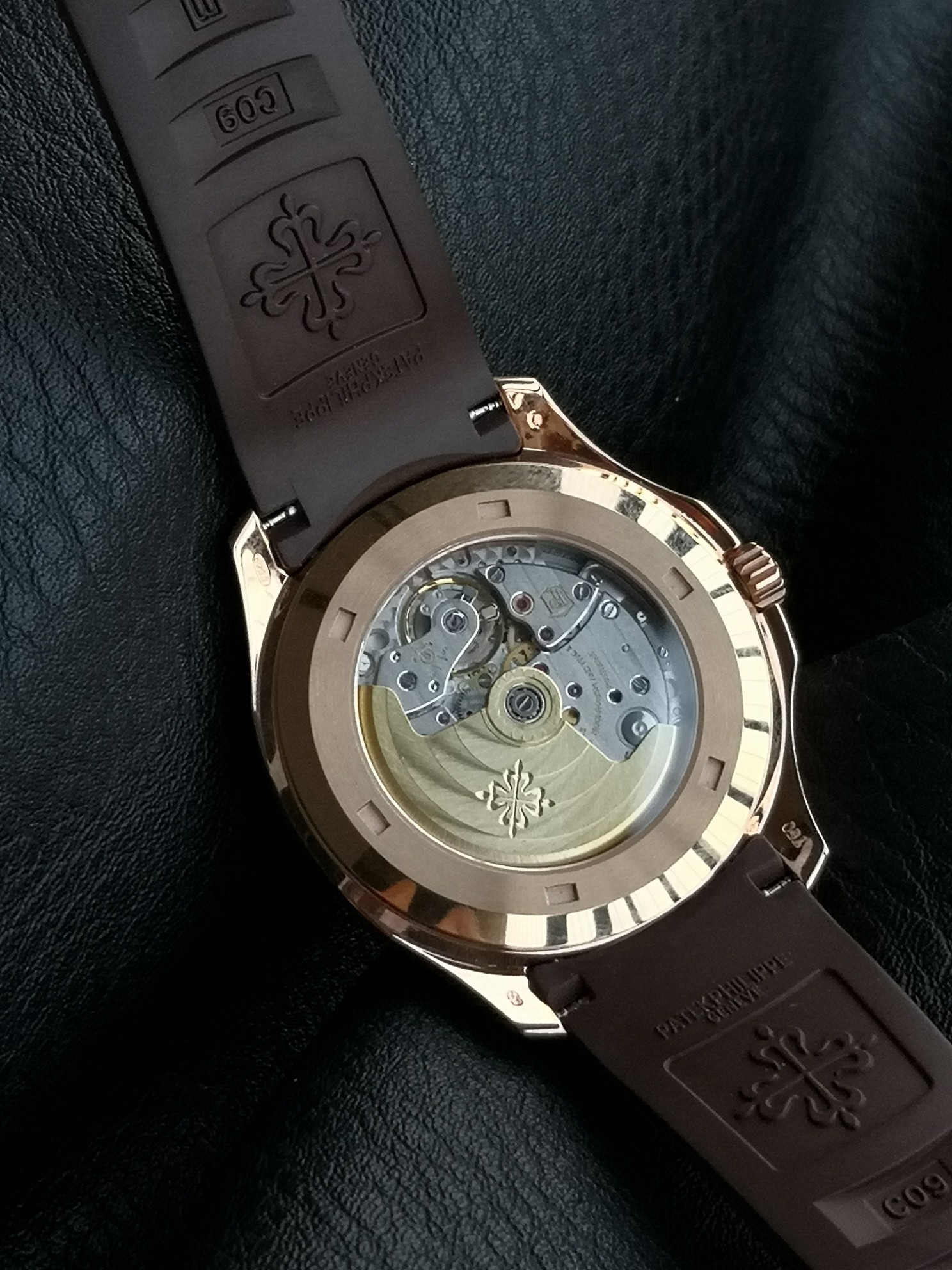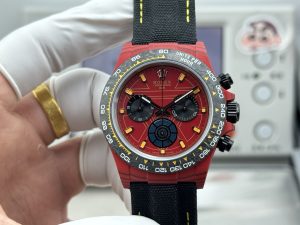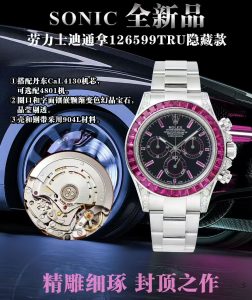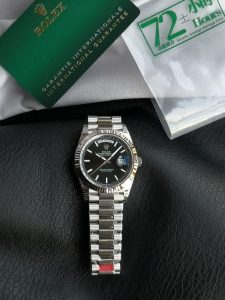In the world of luxury watchmaking, Patek Philippe stands as a beacon of craftsmanship and exclusivity. Their Aquanaut series, particularly the elevated ‘Grenade’ models, are celebrated for their seamless blend of robust performance and refined elegance. BBF, a name synonymous with premium replicas, has recently introduced a version of the Aquanaut that promises to rival the original, boasting interchangeable parts with the authentic model and housing a meticulously crafted Cal.324 S C movement.
Unmatched Precision and Detail
The BBF Patek Philippe Aquanaut replica distinguishes itself with an impressive 8.2mm thinness, making it one of the slimmest on the market. This engineering feat addresses the challenges faced by other replicas which often fall short in dimensions and mechanics. The replica further enhances its appeal with intricately engraved bridge fonts, asserting its attention to detail and dedication to authenticity. The replication precision extends beyond aesthetics to practical interchangeability with genuine parts, an achievement that underscores BBF’s commitment to quality and accuracy.
Ethical Considerations in Watch Replication
The creation and purchase of replica watches stir a lively debate surrounding ethics. On one hand, replicas provide access to luxury aesthetics at a fraction of the price, democratizing luxury for wider audiences. On the other, they challenge the intellectual property and brand heritage of prestigious maisons. Patek Philippe, a brand that defines itself through its legacy and exclusivity, may view these replicas as diminishing the value of its craftsmanship. Yet, from an economic perspective, consumers may argue that the lower financial risk and accessibility offered by replicas justify their choice, particularly when these replicas reach near-identical quality benchmarks.
The Power of Branding and Consumer Psychology
Patek Philippe’s brand power is largely derived from its history, precision engineering, and status as an intangible asset. This emotional affinity transforms the Aquanaut into more than just a timepiece—it becomes a symbol of success and sophistication. Replicas like those from BBF disrupt this symbolic exclusivity by offering a visually accessible alternative that satisfies the same psychological needs for a perceived lower expense. The critique of replicas often reflects a deeper psychological struggle over status and identity, rather than a clear-cut ethical stance.
Economic Reality: Value versus Cost
In the context of investment, genuine Patek Philippe watches typically appreciate over time; however, this isn’t a guarantee. According to industry experts, while select models may rise in value, others stabilize or decline, influenced by broader economic trends and watch collecting fads. The replica, priced significantly lower without the necessity of modification or upgrades, offers a pragmatic solution for those focused on aesthetic and functional value rather than investment potential.
Personal Value and the Replica Watch Market
Ultimately, the choice of a replica watch—particularly one as sophisticated as BBF’s Aquanaut—boils down to personal value assessment. For some, owning a genuine Patek Philippe symbolizes a personal achievement or an heirloom for future generations. For others, replicas offer an opportunity to wear a piece of horological art without the substantial financial commitment, allowing them to enjoy the aesthetics and functionality of a luxury watch without the accompanying anxieties of loss or theft.
The introduction of BBF’s top-tier Patek Philippe Aquanaut replica raises important questions about the future of luxury branding, consumer choice, and the evolving standards of replica craftsmanship. As long as brands continue to innovate and replicas match their pace, the dialogue around authenticity, value, and ethics will persist.












